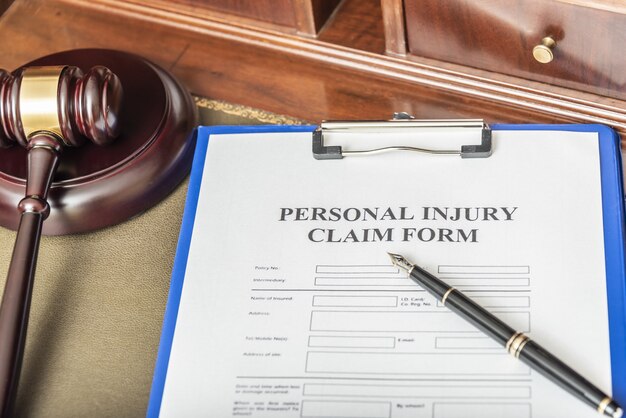How to Know If You Have Jury Duty: A Complete Guide to Understanding Your Civic Duty
Jury duty is a fundamental part of the judicial system, providing citizens with the opportunity to participate in legal processes. However, the idea of receiving a jury summons can be daunting, raising a myriad of questions such as, “How do I know if I have jury duty?” Whether you’re a first-timer or someone who wants to refresh their knowledge, this article aims to demystify the process, guiding you through everything from identifying a summons to preparing for the responsibility that accompanies this civic task.
🕵️♀️ Recognizing a Jury Summons
What Is a Jury Summons?
A jury summons is an official notification from a court indicating that you have been selected as a potential juror. It’s a legally binding document, and ignoring it can lead to penalties. Typically, a summons will include:
- Court Details: Information about which court has issued the summons.
- Reporting Instructions: When and where you need to report for duty.
- Juror Number: A unique identifier to track your participation.
- Contact Information: Who to reach out to for questions or concerns.
How Is a Jury Summons Delivered?
Most jurisdictions send jury summons through the mail. It usually arrives in an official-looking envelope from your local court. Some places are beginning to implement digital notifications, but traditional mail is still the primary method.
🗓️ Checking Your Eligibility and Excusal Options
Who Is Eligible for Jury Duty?
Eligibility criteria for jury duty can vary slightly, but generally, you must be:
- A citizen of the country.
- At least 18 years old.
- A resident of the judicial district issuing the summons.
- Proficient in the language used in court.
Excusal and Postponement Options
It's recognized that not everyone can fulfill their jury duty due to personal, professional, or medical reasons. Here’s how you might defer or excuse:
- Medical Conditions: If health issues prevent you from serving, you may need a doctor’s note.
- Financial Hardship: Demonstrating that serving would cause financial strain might qualify for excusal.
- Previous Service: If you’ve recently served on a jury, you may not be required to serve again for a certain period.
Be sure to check your summons for specific instructions and deadlines on applying for excusal or postponement.
🔍 Confirming Jury Duty Status
How to Check If You Have Been Summoned
If you're expecting a jury summons or want to confirm your status, here are steps you can take:
Check Your Mail Regularly: Most summons are sent via mail. Keep an eye on your mailbox and don't discard official-looking envelopes.
Verify Online: Some courts provide online portals where you can check your jury duty status using your juror number and personal details.
Contact the Court: If you’re unsure or haven’t received anything, a quick call to the court’s jury administration office can provide clarity.
Responding to a Summons
Once you confirm a summons, it's crucial to respond accordingly. Here’s how:
- Follow Instructions: The summons will guide you on how to confirm receipt or request a deferral.
- Prepare Required Documentation: If you need excusal, gather and submit necessary documents early.
- Mark Your Calendar: Ensure you remember your reporting date and any deadlines for excusal requests.
🛠️ Preparing for Jury Duty
Understanding Your Role as a Juror
Jury duty is not just about attending court; it’s about participating in the judicial process. Here’s what to expect:
- Selection Process: You’ll undergo a selection process called “voir dire” where lawyers and judges assess juror suitability.
- Trial Procedures: As a juror, you’ll listen to evidence, deliberate with peers, and help deliver a verdict.
What to Bring with You
While attending jury duty, pack wisely:
- Identification: A government-issued ID is generally required.
- Summons: Always bring your original summons.
- Essentials: Reading materials, snacks, and medications are advisable for downtime.
🙋 Common FAQs and Concerns
What If I Cannot Attend on the Summons Date?
Most courts provide a means to request a postponement. Address this issue promptly by contacting the appropriate office and supplying necessary proofs.
What Happens If I Miss Jury Duty?
Missing jury duty without an approved excusal can lead to legal consequences, including fines or even warrants. Always communicate with the court if an emergency arises preventing attendance.
📊 Quick Guide: Jury Duty Key Points
Here’s a brief summary to keep in mind when dealing with jury duty:
| 📝 Key Aspect | 🚩 Important Details |
|---|---|
| Receiving Notice | Check mail and monitor court websites. |
| Eligibility | Must meet age, residency, and language requirements. |
| Excusal Options | Medical, financial hardship, and recent service. |
| Prepare | Bring ID, summons, and essentials on the day. |
| Response | Follow summons instructions and observe deadlines. |
Wrapping Up: The Importance of Jury Duty
Though receiving a jury summons can stir anxiety, understanding your responsibility and rights makes the experience manageable and rewarding. It’s an essential service to your community, ensuring fair trials and upholding justice.
Armed with this information, you're prepared to handle a jury summons should it arrive. Remember, approaching this duty with knowledge not only eases any personal burden but also strengthens the legal system as a whole. Embrace this civic duty with confidence, knowing you're equipped to fulfill it effectively.

